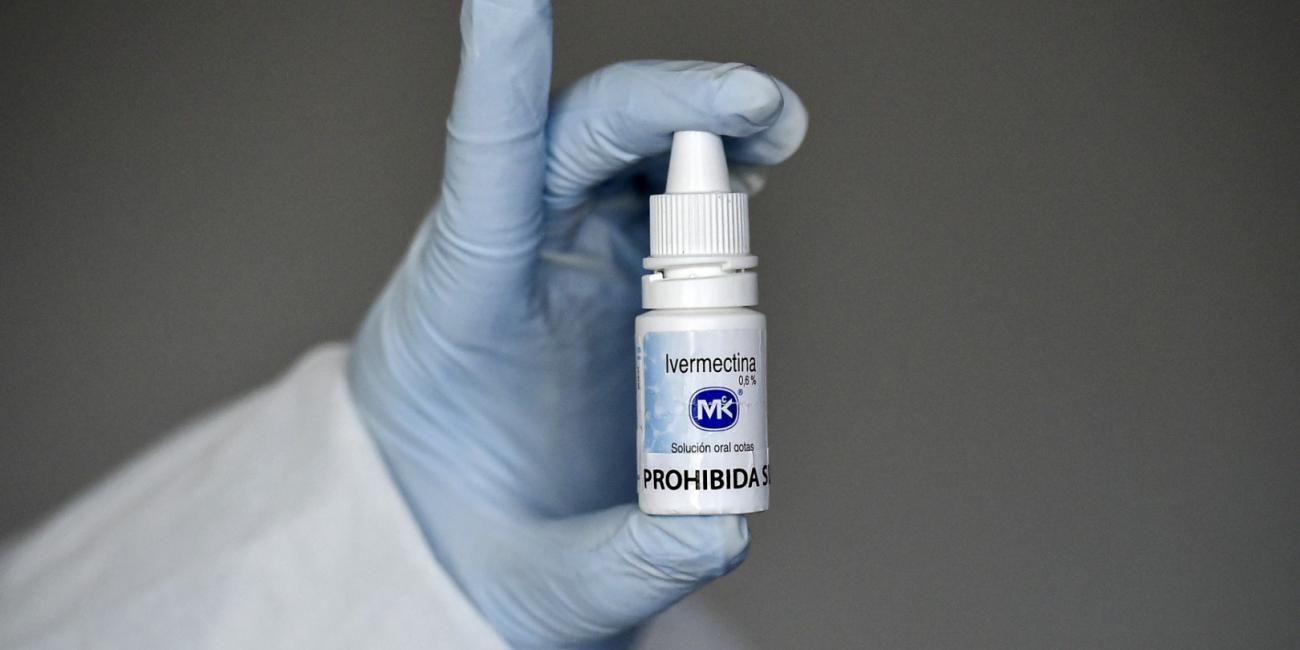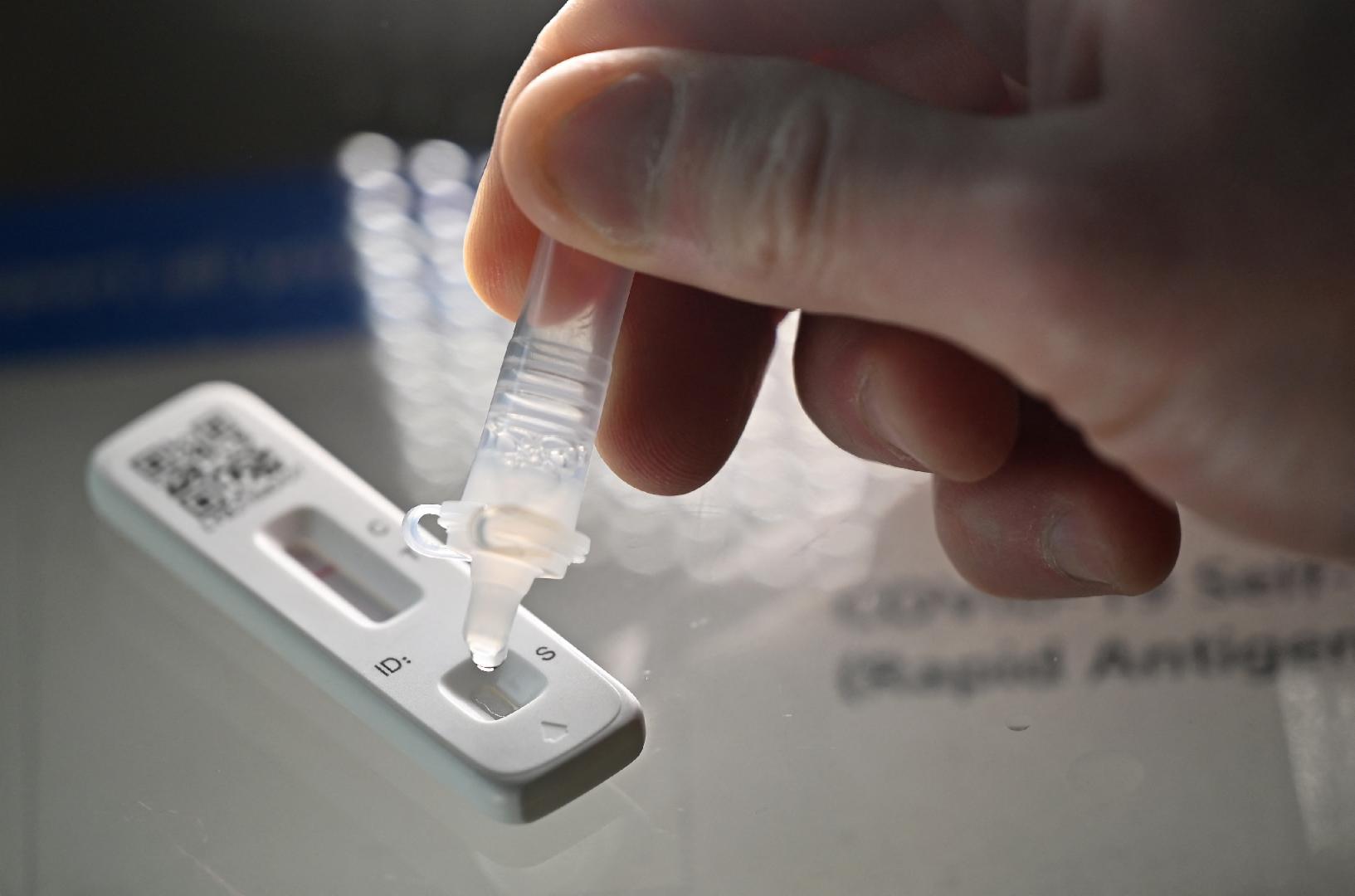
British Columbia decision on Covid rapid tests misinterpreted online
- This article is more than two years old.
- Published on January 12, 2024 at 21:55
- Updated on January 16, 2024 at 17:20
- 3 min read
- By Gwen Roley, AFP Canada
"Does anyone remember the conspiracy theorists saying something about the rapid tests were not even designed to detect the virus and were delivering false positives," says a January 10, 2024 Facebook post.
The post includes a screenshot of a Global News headline on how Interior Health -- a regional public health authority in British Columbia -- has stopped using Covid-19 rapid antigen tests (RAT) in its facilities (archived here). The story broke January 9 when photos of an Interior Health memo from the day prior circulated on social media.
Additional social media users claim the decision proves rapid tests do not work, that they produce false positives -- or that the coronavirus does not exist.
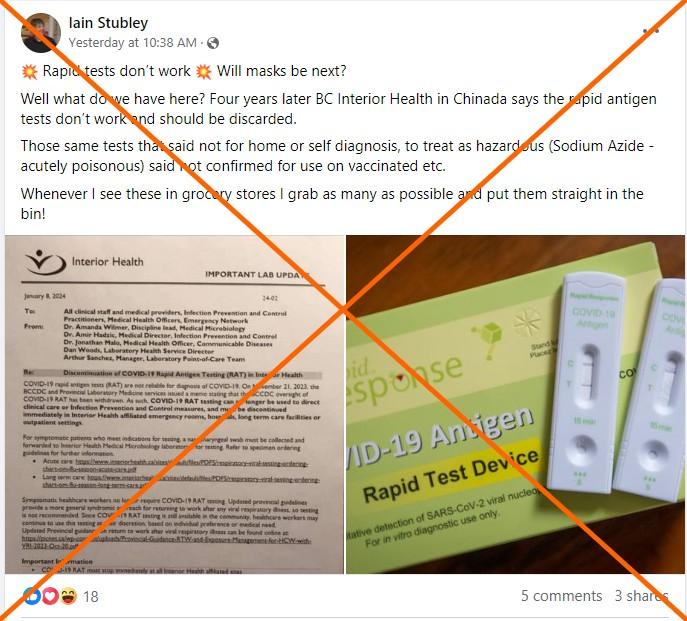
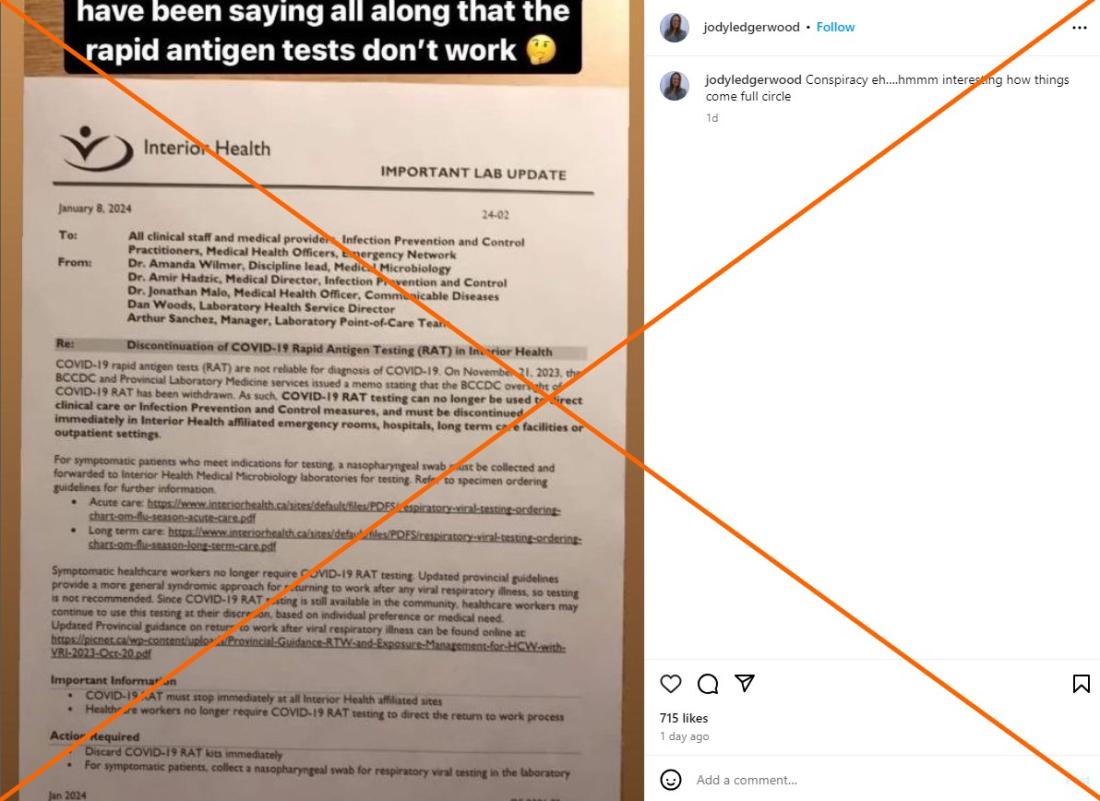
But Interior Health told AFP in a January 9 email that it updated the policy for health care workers and patients because negative rapid test results do not eliminate the possibility of infection.
"Since more accurate polymerase chain reaction (PCR) testing -- which can also detect influenza and [Respiratory Syncytial Virus] -- is readily available, RAT is not the preferred test," said Amanda Wilmer, Interior Health's medical director of microbiology and genomics.
Wilmer said citizens can still use rapid tests at home and trust them if they get positive results.
Media investigation unrelated
Commenters on some of the misleading social media posts connect Interior Health's decision to a December 2023 Global News investigation (archived here).
The news outlet found one of the largest suppliers of rapid Covid-19 tests in Canada, BTNX, had omitted data in its application to federal regulator Health Canada, which may have misled on the tests' reliability. BTNX confirmed the data had been deleted, but a company statement said Health Canada had all the information required for approval of the test kits (archived here).
Interior Health said in its January 8, 2024 memo that it updated its approach to rapid testing based on guidance from the BC Centre for Disease Control (archived here).
The Health Ministry of British Columbia told AFP in a January 12 email that the Global News investigation did not factor into the province's changes.
Interpreting rapid test results
Fahad Razak, a professor at the University of Toronto's Faculty of Medicine, said rapid tests can provide false negatives because they are less sensitive than PCR tests and are often performed by people who may not be collecting a proper sample.
Because of this variability, he said patients can sometimes get both positive and negative results throughout an infection.
"The rapid test is not as accurate as the PCR tests -- we know that. That's not new news. We've known that since rapid tests were first introduced," Razak said January 11. "However, they do have properties still which allow them to be useful to detect whether you have Covid-19, if you have symptoms in your home."
He added that inaccurate test results are possible with other tests for conditions ranging from flu to cancer.
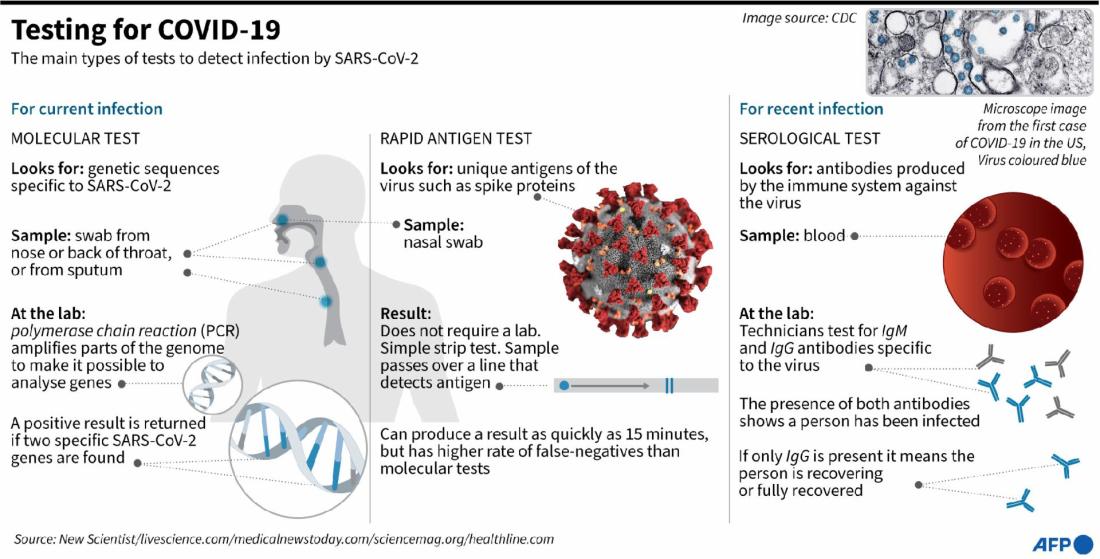
Anna Banerji, a professor at the University of Toronto's Dalla Lana School of Public Health, confirmed that despite the allegations against BTNX and the possibility of false negatives, positive rapid test results are still reliable.
"If someone has a positive Covid-19 test, I assume that they have Covid-19," she said.
A January 2022 study looking at Covid-19 rapid tests in Canada found 0.05 percent of its sample produced a false positive, attributing two clusters of incorrect results to a possible manufacturing error (archived here).
Testing important in winter
Wastewater analyses indicate Covid-19 cases are on the rise in Canada (archived here). And without many mitigation measures left in place, Banerji said rapid tests are still useful for making personal health decisions.
Interior Health said that with the winter respiratory virus season, citizens can rely on symptoms in tandem with rapid test results to decide how to mitigate virus spread.
"Regardless of RAT results, it's important to use respiratory hygiene measures and stay home until you feel well enough to participate in regular day-to-day activities," Interior Health's Wilmer said.
More of AFP's reporting on health misinformation is available here.
Paragraph 10 was corrected to clarify that Global News' reporting found BTNX omitted data from its application to Health Canada.January 16, 2024 Paragraph 10 was corrected to clarify that Global News' reporting found BTNX omitted data from its application to Health Canada.
Copyright © AFP 2017-2026. Any commercial use of this content requires a subscription. Click here to find out more.
Is there content that you would like AFP to fact-check? Get in touch.
Contact us



